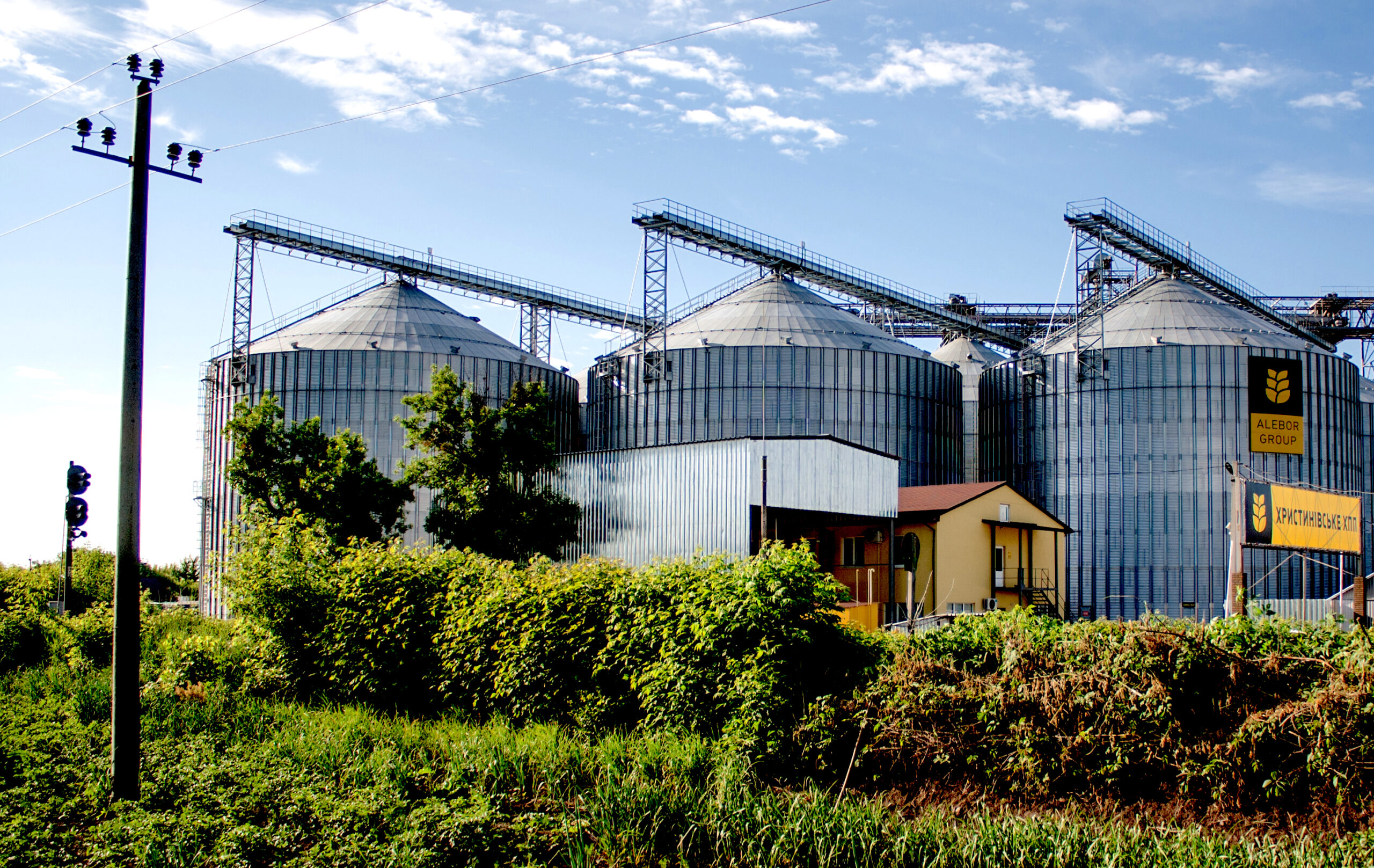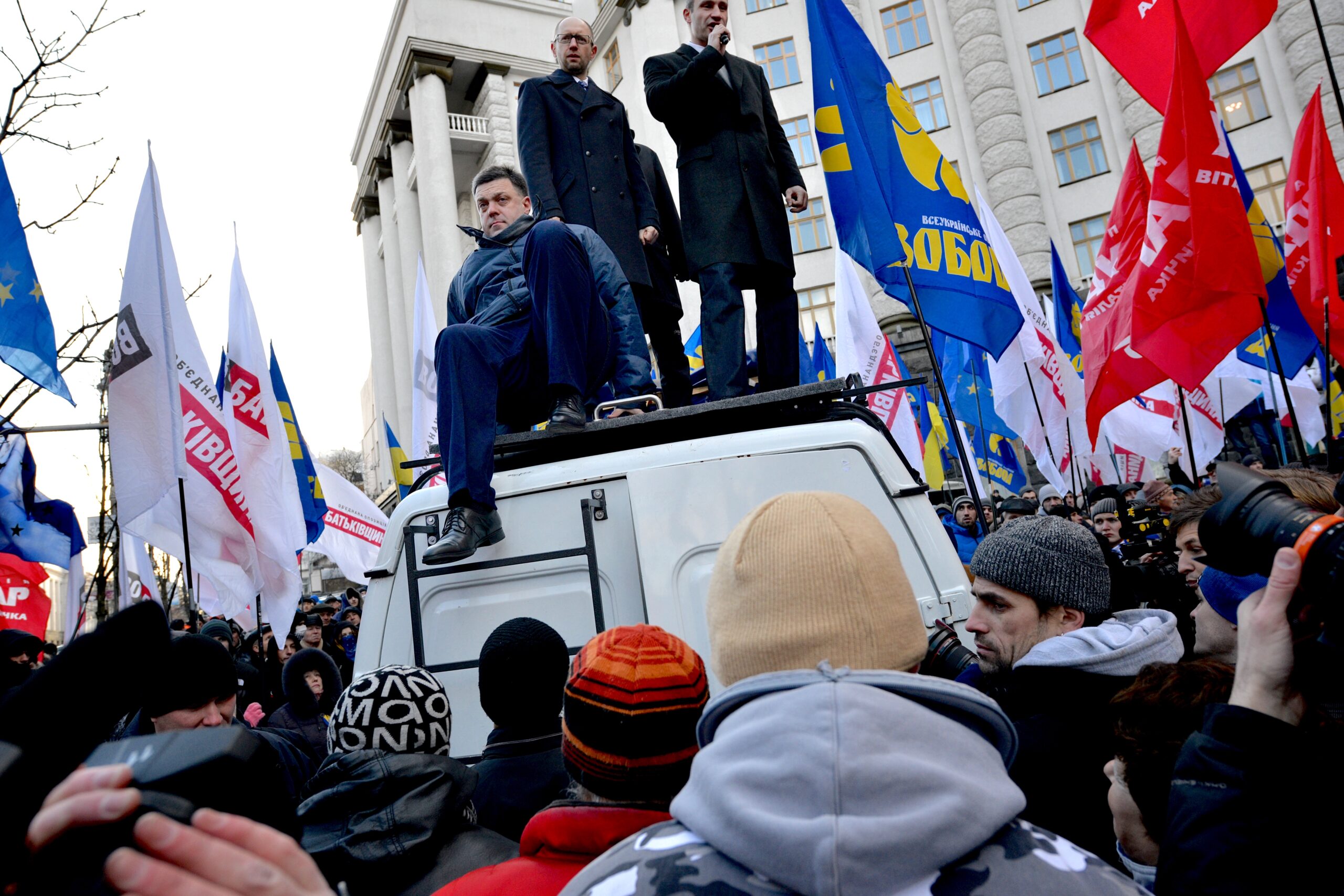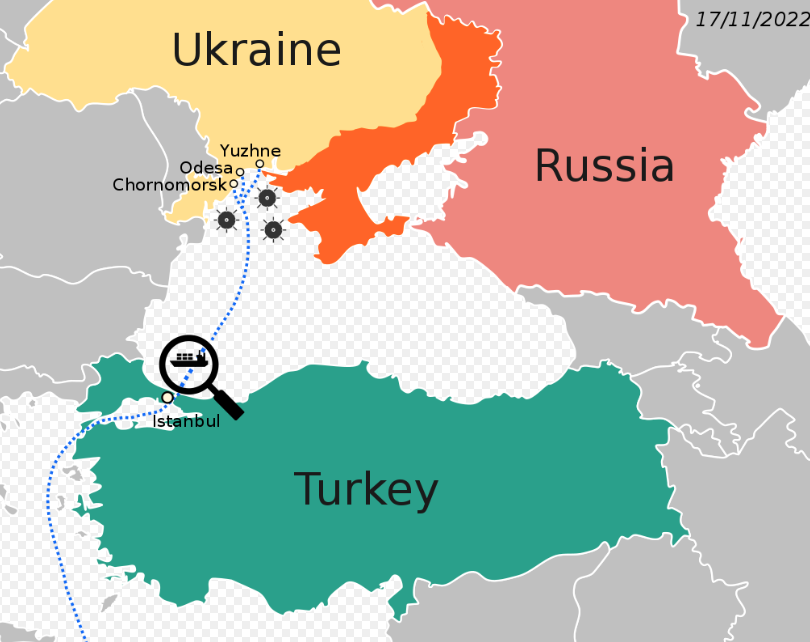Governments including Poland and Hungary are balking at the effects of tax-free cheap grain from Ukraine on their domestic markets, Peoples Dispatch reports.

Alebor Group grain elevator in Khrystynivka, Ukraine, 2021. (Nikride, CC BY-SA 4.0, Wikimedia Commons)
European Union (EU) authorities and five eastern European countries are in a stand-off over the import of tariff-free grain from Ukraine. The decision to remove the tariffs on grain imports from Ukraine was taken by the EU in June 2022.
However, eastern European countries such as Poland, Hungary and Romania have been increasingly unhappy with the withdrawal of tariffs, citing the impact on their local markets.
The disagreement boiled over last week when five countries — Poland, Hungary, Bulgaria, Romania and Slovakia — blocked the import of Ukrainian grain. A meeting on April 19, between EU authorities and representatives of the five countries, did not lead to an immediate breakthrough. Incidentally, many of these countries are close allies of Ukraine.
Following the outbreak of the war, the EU had lifted all tariffs and quotas on Ukrainian grain exports to its member states to ensure their sale to global markets.
Earlier this month, farmers in Romania, Bulgaria and Poland protested the price crash of their crops due to the import of tax-free cheap grain from Ukraine. Even though the EU had pledged compensation worth 56.3 million euros ($61.74 million) to the grain farmers in these countries, the governments consider it insufficient. [On Wednesday, the E.U. proposed extra measures and Reuters reports the meetings to resume next week.]
Many countries in Eastern Europe have been calling for reintroduction of tariffs on Ukrainian grain to protect their domestic farmers.
A farmer waves the #Bulgarian flag during an effort to block #trucks crossing the border between #Bulgaria and Romania in protest against the duty-free import of #grain coming from #Ukraine into the European Union, on March 29. #Europe #EU #Russia #farming pic.twitter.com/PZQgwgOoth
— Said Pulido (@Super_Said) April 19, 2023
After the latest crisis, EU officials proposed a compromise in which Ukrainian produce would be transported through these countries but would not enter their markets. A 100 million Euro package for farmers in these countries was also proposed. However, no agreement has been reached on these provisions
The Ukrainian economy is mainly dependent on grain exports, metallurgy and the production of machinery.
Russia was the chief trading partner of Ukraine, which also significantly benefited from the supply of cheap oil and natural gas from Russia until the EU-instigated anti-Russia Euromaidan coup in the country in 2014.

Ukrainian opposition leaders Oleh Tyahnybok, seated on van, with Vitali Klitschko and Arseniy Yatsenyuk, addressing Euromaidan demonstrators, Nov. 27, 2013. (Ivan Bandura, CC BY 2.0, Wikimedia Commons)
Since then, Ukraine-Russia relations plunged, with rising conflicts escalating to a full-fledged war in February 2022. By then, the EU had become the chief trading partner of Ukraine and, currently, the Ukrainian economy is fully dependent on funds from the U.S. and EU countries, funds which are primarily earmarked for the war against Russia.
After the outbreak of the war, Russia and Ukraine agreed to take part in the Black Sea Grain Initiative that was brokered by Turkey and the U.N. in July 2022 to ensure maritime grain shipments from Ukraine to other countries in order to tackle rising food shortages across the world, especially in poor and developing countries in Asia and Africa.

Map of Black Sea Initiative, as renewed on Nov. 17, 2022, after initially being signed on July 22, 2022. (Randam, CC BY-SA 4.0, Wikiimedia Commons)
Russia suspended its participation in the deal for a brief period of three days last year, following the massive drone attack on the Russian-controlled port of Sevastopol on Oct. 29, 2022. It accused Ukraine of using the grain corridor in the Black Sea to attack Russian targets.
Russia returned to the deal on Nov. 2 after Turkish and U.N. mediation, but still maintains some reservations as it claims that “much of the Ukrainian grain shipped under the deal to ease a global food crisis is reaching rich European countries, instead of the poor and developing countries.”
Talks are on now on the extension of the deal. It has already been extended once and is expected to continue till May 18 this year.
In May last year, the EU also introduced solidarity corridors through its member states bordering Ukraine for the transport of grain. However, even the European Commission admitted in July 2022 that “the majority of Ukrainian wheat is stuck in the nearby EU countries barely reaching the third countries that need it.”
Polish farmers block the road at the border with Ukraine. They are protesting against the importation of Ukrainian grain, whose low price has a negative effect on the local European market and makes local products unprofitable. Such protests are held all over Eastern Europe. pic.twitter.com/qc8R5EPtjK
— Medan (@sumnjam) February 16, 2023
According to several observers and analysts, the U.S.-led NATO war alliance’s strategic scheming against Russia, along with the business interests of EU-backed oligarchs, are among the major factors that have contributed to the start and worsening of the Russia-Ukraine conflict.
It should be noted that Ukraine — a key exporter of grains — was a country where the sale of agricultural land was legally prohibited until recently.
When Ukraine was part of the Soviet Union, agricultural land was state property and collective farming was in practice. In the post-Soviet period, rampant privatization of agricultural land was initiated in Ukraine — as dictated by the IMF in the 1990s — leading to the concentration of large hectares of farmlands in the hands of a few oligarchs.
In 2001, the Ukrainian government put a moratorium on the sale of farmland to check this trend. The post-Maidan government led by President Volodymyr Zelensky lifted the long-standing moratorium in 2021, drawing criticism from various groups including farmers, communes, communists and others.
This article is from Peoples Dispatch.

Ha! I’ll bet Russia would give all of these greedy ingrates a big discount on grain just like on petroleum products.
Western imposed neoliberalism is destroying the planet. Ukraine is the latest battleground.